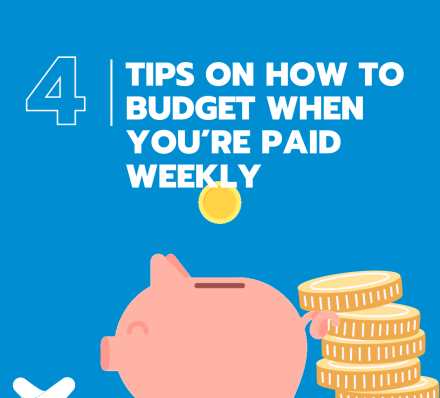How to budget when you’re paid weekly
?
With the rising cost of energy, fuel and food, you may be facing (or avoiding) an overhaul of your budget. This can be tricky when you’re paid weekly in a world of monthly bills, but once you know how to do it, it’s easy. Here’s how.
?
Know your income and expenditure
When you’re paid weekly, you need to work out how much you’ll be paid each month and how much your bills and regular expenses are, as most bills come out at the start of every month.
Write down your total earnings per month (while not every month has the same number of days, 30/7 x weekly pay is close enough) and list all your monthly bills and expenses to get an idea of how much spending money you’ll have left over. Include:
-
Rent
-
Energy bills
-
Water
-
Council tax
-
Internet
-
Mobile phone
-
TV
-
Any other subscriptions
-
Food
-
Travel
Set up separate accounts
If you keep finding yourself spending your bill money, try setting up different accounts for bills, spending money and savings. This way, you’ll easily be able to see how much you have to spend and budget accordingly.
Putting a bit into savings each week can be really useful not only for unexpected expenses but also for holidays, Christmas and birthdays, and spontaneous treats, as well as saving for bigger goals like a car or a deposit on a house.
Separate your bills weekly
Once you’ve got a total for your monthly bills, divide it by 4 or 5 depending on the number of paydays in the month. (Remember this will vary, so make sure you keep it up to date.) The figure you get is the amount of money you’ll need to put in your bills account each week to be
able to pay your bills at the end of the month.
Keep some money for yourself
While saving and bills are important, budgeting is also about making sure you can afford to do things you enjoy. Whether that’s shopping, going for drinks with friends or eating out, try to set some money aside for your happiness and well-being.
You can see our live jobs here https://www.vetrorecruitment.co.uk/jobs




